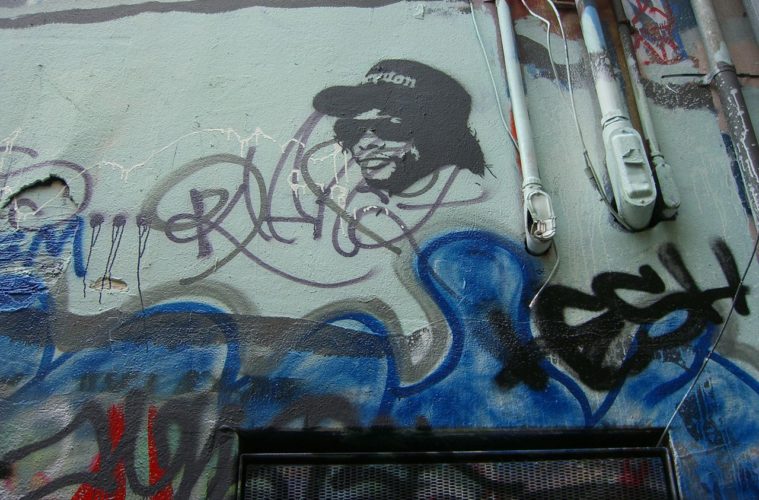They say legends never die. And it’s probably why Eazy-E is still many hip hop enthusiasts’ favorite N.W.A member — it’s also most likely the reason why the group made sure to acknowledge him when N.W.A was inducted into the Rock & Roll Hall of Fame. Yes, Eazy-E could’ve made more hits with Dr. Dre, Ice Cube, and the rest of the gang. But sadly, his life was cut short due to AIDS when he died at age 30 in 1995. But “The Godfather of Gangsta Rap” wouldn’t have earned that nickname had he not significantly contributed to the 90s rap culture.
90s Rap Culture Was Mostly East Coast Hip Hop
The great thing about N.W.A’s journey to stardom is that there are films like Boyz n the Hood and Straight Outta Compton produced by former N.W.A member himself, Ice Cube. These drama films may have had a few dramatizations for a more theatrical effect, but what’s apparent is the group struggled as individuals as well as N.W.A members — and these Compton natives were handed a number of struggles, for sure!
Ice Cube may have been — what most consider to be — N.W.A’s songwriter, and Dr. Dre the beat maker, but the “voice” of the group came from the distinct rap style of Eazy-E (born Eric Wright). Back then, in the nineties, East Coast rap was already flourishing. The New York-based rappers then were already making music about the Big Apple’s high cost of living and their own problems with discrimination (because these artists, too, were predominantly African-American) over Boom Bap beats — and California rappers didn’t have their own identity back then.
Enter N.W.A.
“WHAT the Police Now?”
We won’t spoil the biographical film Straight Outta Compton for you so the “magic” (of the group’s inception) is kept alive, but long story short — and very much a true-to-life story — West Coast hip hop was born (or re-emerged but on a bigger scale) thanks to the help of N.W.A. The group honed their musical talent and skills in the 90s. And the most popular remaining members still have their artistic skills recognized and praised — all because of their lives as former N.W.A members; Dr. Dre is still known for his beat-making and Ice Cube’s storytelling and writing landed him opportunities as a producer in several films.
When the group made a song related to police brutality via the song F**k tha Police (because Ice Cube experienced discrimination when he had an unjustly encounter with the cops), the group playing a huge role in reclaiming the N-word (by having their group’s name starting with the word), and by having Eazy-E as N.W.A’s main rapper — a 5’3 man with a high-pitched voice! — people finally knew what West Coast rap sounded like. Moreover, many also learned what was going on on the other side of the map because of them.
But it wasn’t always the bling and limousines — the “gangsta” part of the Gangsta Rap genre is called that for a reason. Unlike NYC rap — and poverty being the focal point of their songs, West Coast natives have/had to deal with a lot of gun and gang violence as well as drug wars. Deaths related to these dilemmas aren’t exclusive to the hip hop artists we lost; it’s not just 2Pac, XXXTentacion, and Nipsey Hustle — sadly, it’s still present up to this day and non-celebrities still die because of these problems.
Eazy-E — He Who Is (Probably) Cruisin’ Down the Street in His 64…
Before Eazy-E, to a lot of people, going “hard” meant having to look tough — until, of course, The Godfather of Gangsta Rap showed everyone that “street cred” was all about how one leaves a mark on earth and how you can inspire others by letting them know that he understands — as he’s been through hardships himself. Eazy-E may not have lived a life long enough to make more music we ought to listen to, but when the group he left behind almost 30 years ago still acknowledges him, then you know he not only touched their lives, he also influenced a lot more others — like the whole 90s rap culture that’s now considered to be the golden age of West Coast hip hop.
Advertising disclosure: We may receive compensation for some of the links in our stories. Thank you for supporting LA Weekly and our advertisers.

